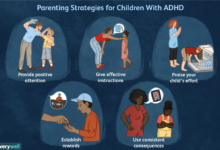When it comes to overcoming addiction, the journey can be tough for both those dealing with addiction and their families. That’s why many seek the expertise of consultants specializing in addiction recovery. These professionals play a vital role in assisting individuals and families in making choices regarding treatment options, accessing resources, and offering continuous support. This article will delve into the importance of consultants in addiction recovery and how they contribute to guiding individuals toward a healthier and more fulfilling life.
Getting a Grasp of Addiction Recovery
Before discussing the role of consultants in addiction recovery, it’s crucial to have an understanding of addiction itself. Addiction is a condition that impacts both the brain and behavior of individuals affected by it. Those grappling with addiction often face urges for the substance or behavior they are addicted to, leading them to engage in actions that result in negative outcomes across various areas of their lives.
The Function of an Educational Consultant
Now, let’s discuss “What is an educational consultant?.” Educational consultants act as sources of information and support for individuals seeking assistance with addiction recovery. These experts are well-informed about treatment approaches, evidence-based strategies, and available support services in the field. They collaborate closely with clients to grasp their needs, preferences, and objectives, guiding them in making informed choices as they progress on their path to recovery.
Assessment and Tailored Treatment Planning
A key responsibility of an advisor involves conducting evaluations to identify the appropriate treatment options for individuals dealing with addiction. Through interviews, observations, and personalized assessments tailored to each client’s situation, an educational advisor gains insights into their strengths, challenges, personality traits, and individual conditions.
Drawing from these assessments, the educational advisor creates treatment plans that cater to each individual’s requirements. These plans consider factors, such as the nature and severity of addiction treatment efforts (if any), coexisting mental health issues, family dynamics, and support systems.
Connecting Clients with Resources and Referrals
Another vital role of an advisor is linking individuals with addiction recovery resources and programs. With expertise in the field, these advisors possess an understanding of the programs that are available- ranging from outpatient facilities to residential rehab centers.
Educational advisors inform their clients about levels of care therapy approaches and alternative treatments that may be suitable for their situation. Furthermore, they have a network of connections with organizations specializing in addiction recovery. These connections can help individuals access vital resources like detox services, counseling programs, medical professionals, and support groups.
Continuous Advocacy
The journey of addiction recovery is not straightforward. Individuals may encounter challenges or setbacks that cause them to question their progress. This is where educational consultants step in, providing support to nurture motivation, resilience, and personal development.
These experts act as advocates for their clients within the treatment system, ensuring their rights are upheld. They receive care. They regularly monitor progress, offer guidance during times, and assist individuals in identifying supportive services they may require beyond initial treatment.
Moreover, educational consultants promote communication between individuals seeking addiction recovery and their families. By encouraging discussions within households they help fortify relationships and create an atmosphere conducive to long-term sobriety.
Enhancing Success Rates
The role of a consultant goes beyond supporting individuals before or during treatment. It also plays a crucial part in preventing relapse after treatment. Educational consultants are well-versed in a variety of aftercare programs and strategies to prevent relapse. They provide individuals with the tools to handle triggers and risky situations they may face in the future.
Rather than focusing on short-term fixes, these professionals prioritize long-term maintenance to improve the chances of lasting recovery success. They offer education on coping mechanisms, healthy lifestyle choices, self-care practices, and community resources to help individuals maintain a drug life beyond initial treatment.
In conclusion, the role of consultants in addiction recovery is crucial. From assessing individuals’ needs and creating treatment plans to offering support resource referrals and relapse prevention strategies – these experts significantly impact the lives of those battling addiction and their families. By imparting knowledge, providing guidance, advocating for clients, and offering support, educational consultants guide individuals through the challenging path to recovery. Whether seeking help for oneself or supporting a loved one, collaborating with a consultant can make a real difference in achieving lasting sobriety and promoting overall well-being.




